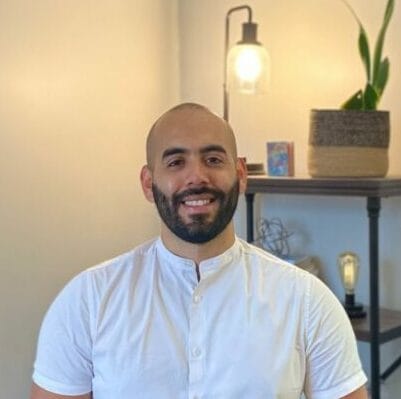
Despite the growing awareness of mental health issues, many men in Philadelphia still hesitate to seek therapy. The stigma attached to therapy can make men feel ashamed or weak for admitting they need help. However, therapy can be an incredibly powerful tool for men to overcome challenges and improve their mental health.
Many of today’s conversations are centered around male privilege, toxic masculinity, and patriarchy. These conversations can ignite so much in men. Whether you agree or disagree with the statements in these conversations, they impact you. Our Philadelphia, Pennsylvania, and New Jersey therapists can help you navigate being a man in this world.
The Better You Insitute prides itself on creating space for men to be themselves or find themselves without the outside pressures or judgments of maleness. Our practice offers genuineness and a realness that creates a safe space for men in stressful situations, BIPOC, and LGBTQ+ individuals to explore why things aren’t going how they want them to and to develop the skills necessary to lead fulfilling and successful lives.
As men in our society, it’s common to feel as though you must always keep up a facade of strength and invincibility. However, this can often lead to feelings of isolation, anxiety, and burnout, and feeling misunderstood. Our therapists are here to help you break through these barriers and to create a sense of balance and resilience in your personal and professional lives. We recognize that men are human, with human issues.
Our practice is inclusive and welcomes all individuals, regardless of race, sexual orientation, or gender identity. We believe everyone deserves access to quality mental health care, and we strive to create an environment where all clients feel valued and respected. We create a space where you don’t have to have it all figured out. A space where you can let your guard down and express yourself in ways that feel right to you.
We’ll explore how therapy can benefit men, how to find the right therapist, and what to expect from a session. Whether you’re struggling with anxiety or depression, relationships, adjusting to fatherhood, or want to work on personal growth, this post is for you. Let’s break down the barriers and discuss therapy for men in Philadelphia.
Our Specialists & Therapists for Theraphy for Men in Philadelphia

Exploring Masculinity in Therapy
For many men, traditional concepts of masculinity can be a barrier to seeking therapy. However, therapy can provide a safe and supportive space for men to explore their masculinity and challenge harmful beliefs about what it means to be a man. The idea that men should be self-sufficient and stoic can make expressing emotions and seeking help when needed challenging. This understanding of how men “should be” can harm their well-being and relationships.
Therapy can help men learn to unravel learned messages about maleness, communicate more effectively by owning their emotions and expressing them more effectively, build stronger relationships not based on unhealthy narratives that were learned, and better manage stress and emotional challenges through healthy outlets. By working with a therapist, men in Philadelphia can develop a healthier and more nuanced understanding of their masculinity, free from the limitations of traditional gender roles. By embracing the full range of their emotions and experiences, men in Philadelphia can unlock their full potential and achieve greater happiness and fulfillment.
Addressing Toxic Masculinity in Therapy
Toxic masculinity is a term used to describe harmful beliefs and behaviors associated with traditional masculinity, such as aggression, dominance, and emotional repression. These behaviors can be damaging not only to others but also to the individuals who exhibit them.
In therapy, men can explore how toxic masculinity has influenced their lives and relationships and work towards developing healthier and more authentic expressions of masculinity. Men can develop self-awareness, empathy, and emotional regulation by examining the underlying beliefs and emotions driving toxic behavior.
Therapy can help men challenge harmful beliefs about gender roles and relationships, learn to communicate more effectively, build stronger connections, and manage stress and emotional challenges. By embracing a healthier and more inclusive understanding of masculinity, men can develop their full potential as individuals and create healthier and more fulfilling relationships with those around them.
Breaking the Stigma
Despite the many benefits of therapy, the stigma surrounding men in Philadelphia seeking mental health help is astounding. Throughout their life, men have heard that therapy is only for “weak” individuals, that struggling with mental health issues is a sign of weakness, or that they are less of a man for it, making seeking services for help a foreign concept.
It is common for a man to have never seen his elder male figures (father, uncles, grandfathers, etc.) showing emotions except maybe anger. If you try to analyze what is happening too much, you’re “overthinking it; it’s not that complicated.” Yet, you are accepted if you act on these significant, emotional experiences through violence or drinking.
If you are tired of being unable to show emotion when you have them or think analytically. If you are tired of only having the option of acting out or numbing out, then you are in the right place. Emotions and introspective thinking is human nature. Men are humans. You deserve more than intense anger or substance use to express your inner world!
Therapy can be a powerful tool for anyone looking to improve their mental health and overall well-being. Seeking therapy is an act of strength; it takes courage to ask for help and go inward with reflection. It takes bravery to make the changes you want to see. By breaking down the stigma, men in Philadelphia can take a positive step and seek treatment for their well-being.
Common stigmas faced when seeking therapy:
- Admitting to having mental health issues is a sign of weakness.
- Men should be able to handle their problems independently without seeking help.
- Going to therapy is only for “crazy” or “weak” people.
- Seeking therapy means admitting to being unable to solve problems on their own.
- Men should not be emotional or vulnerable; therapy is a space for expressing emotions.
- It’s too expensive or time-consuming.
- It’s not you that has to change. It’s the other people in your life who need to change.
- The therapist will analyze you.


The Benefits of Therapy for Men
Despite the above stigmas (read: myths about therapy for men), therapy can provide numerous benefits for men in Philadelphia, including improved health, better relationships, and increased self-awareness. Men can struggle with various challenges, including depression, anxiety, and trauma. Therapy can help them uncover what is causing these issues in the first place and develop coping strategies to improve their overall well-being. Additionally, it can help build stronger relationships with partners, friends, and family by improving communication skills, getting them to reflect on their own role in the situation, increasing their empathy for others, and helping to address any underlying issues.
How Therapy Can Benefit Men in Philadelphia
Therapy can be a valuable resource for men in Philadelphia facing mental health challenges, relationship issues, or life transitions. Given Philadelphia’s recent events, it is now more critical than ever that everyone, including men, have the support they need to process events and move forward. Here are some of the ways that therapy can benefit men:
- Develop greater emotional awareness – Therapy can help men develop greater awareness of their emotions, which ultimately gives way to a deeper understanding of Self
- Improve communication skills – Many men struggle with communication, particularly around emotions. Therapy can provide a safe space to practice communication skills specific to emotional disclosures and expression to build stronger relationships.
- Reduce stress and anxiety – Therapy can provide healthy tools and techniques to manage stress and anxiety, improving overall well-being.
- Work through trauma – Many men have experienced trauma in childhood or later in life that they wouldn’t label as trauma, but it is trauma. Therapy can help process and heal from these experiences.
- Build resilience – Therapy can help men develop greater resilience and coping skills, improving their ability to handle life’s challenges and adversities.
- Improve self-esteem – Life can get lonely, especially for men. Loneliness can impact one’s self-esteem and self-worth. Therapy can help men develop self-awareness and self-acceptance, improving self-esteem and overall confidence. By increasing your self-esteem, you will feel more confident in creating healthy, long-lasting relationships.
Navigating Mental Health Challenges as a Man in Philadelphia
As a man in Philadelphia, navigating mental health challenges can be especially difficult. Many men face unique challenges, such as societal pressure to be strong and self-sufficient, disbelief in the male truth, shame or guilt around seeking help, a lack of mental health resources for men specifically, and a lack of representation in the mental health field. However, it’s essential to prioritize your mental health and seek support when needed. Whether you’re struggling with depression, anxiety, trauma, addiction, or any other mental health challenge, therapy can help.
Therapy provides a safe and confidential space to explore your emotions and experiences, develop coping skills, and work towards your goals. Numerous mental health resources are available in Philadelphia, including support groups, hotlines, and clinics specializing in men’s mental health.
Remember, seeking help is a sign of strength, and there is no shame in prioritizing your mental health. Taking care of yourself can build a healthier and more fulfilling life for yourself and those around you.
Overcoming Shame and Vulnerability
Shame and vulnerability can be significant barriers to seeking therapy for men in Philadelphia. Many men feel shame or guilt about seeking help and sharing their emotions and experiences.
However, it’s essential to remember that vulnerability is a sign of strength, not weakness. In therapy, men can work towards overcoming shame and developing greater self-acceptance and emotional awareness. Men can develop greater self-compassion and self-esteem by exploring the underlying beliefs and experiences contributing to shame and vulnerability.
Additionally, therapy provides a safe, nonjudgemental, zero expectations, and confidential space to explore emotions and experiences without fear of judgment or rejection. By opening up in therapy, men can learn what it feels like to move forward in a relationship consisting of empathy, acceptance, vulnerability, and so much more. By creating a healthy bond within the therapeutic relationship, men can use therapy as a model to communicate more effectively and build stronger relationships with others.
It’s important to remember that overcoming shame and vulnerability is a process that takes time and effort. However, the benefits of increased self-awareness and emotional well-being are well worth it. By prioritizing your mental health and seeking support, you can develop greater resilience and live a more fulfilling life.


Therapy for BIPOC men
We recognize that BIPOC men may face unique challenges in their personal and professional lives that can impact their mental health and well-being. We are committed to providing a safe and accepting space for BIPOC men to explore their experiences and develop strategies for coping with the impacts of systemic racism, discrimination, and marginalization, and oppression.
As BIPOC men, you may have experienced microaggressions, discrimination, and prejudice throughout your life, and these experiences can impact your mental health and self-esteem. Our therapists are sensitive to these issues and work collaboratively with you to develop strategies for managing the impact of these experiences on your mental health.
We also recognize that the intersection of race and gender can lead to unique challenges for BIPOC men. Our therapists are trained to explore the ways in which your racial and gender identities intersect and how these intersections may contribute to feelings of isolation, marginalization, and other psychological distress. Moreover, we recognize that sometimes it is within these like groups that the hardships exist. Men being tough on other men, Black individuals being hurtful to other Black individuals.
Our goal is to provide you with a safe and supportive environment where you can critically analyze your life experiences in a non-judgmental space to get to the bottom of what is going to make you successful, happy, and overall better in life. We aim to empower you to develop the tools you need to manage the unique challenges you face as a BIPOC man in today’s society.
We recognize that mental health care can be stigmatized in some communities, and we want to assure you that seeking therapy is a sign of strength and resilience. Our practice is committed to providing culturally responsive and sensitive care that meets the unique needs of BIPOC men, and we welcome you to reach out to us if you’re interested in learning more about our services.
.Therapy for LGBTQ+ Men
LGBTQ+ men may also face challenges in their personal and professional lives that can impact their mental health and well-being. We are committed to providing a safe, affirming, and allied space for LGBTQ+ men to explore their experiences and develop strategies for coping with the impacts of discrimination, marginalization, and other issues related to their sexual orientation or gender identity.
As an LGBTQ+ man, you may have experienced homophobia, transphobia, and other forms of discrimination throughout your life, and these experiences can impact your mental health and self-esteem. Our therapists are sensitive to these issues and work collaboratively with you to develop strategies for managing the impact of these experiences on your mental health.
We also recognize that coming out, exploring your sexual orientation or gender identity, or transitioning can be challenging processes that can cause stress, anxiety, and confusion. Exploration of these topics can bring up a variety of different emotions, thoughts, and behaviors in you. We are familiar with common responses men in the LGBTQ+ community have when exploring these life defining topics. Our therapists are trained to explore these issues with sensitivity and understanding, and we aim to provide a supportive environment for you to explore your identity and develop the skills you need to lead a fulfilling life.
We pride ourselves on creating an environment you feel safe to explore your thoughts and feelings with a therapist who accepts and honors you the way you are. We aim to empower you to finding the tools you need to manage the unique challenges you face as an LGBTQ+ man in today’s society.
We recognize that being a male and a member of both LGBTQ+ and BIPOC communities comes with even heavier mental and emotional loads in our society. We want you to know that while we are informed and can create space for those in such marginalized communities, we do not hold the same biases that many do for men in these groups.
Finding the Right Therapist for Men in Philadelphia: Tips and Advice
Once you choose to seek therapy, the next step is finding the right therapist. With so many options available, figuring out where to start can take time.
Here are some tips and advice for men in Philadelphia looking for a therapist:
- Consider your needs and goals: Before starting your search, consider what you want to achieve through therapy. This will help you identify the type of therapist you need, such as a specialist in anxiety, depression, trauma, intimacy, or addiction.
- Think about who you want to share your inner world with. Do you want them to be quirky, serious, funny, knowledgeable, warm, empathic, direct, etc? Ask the therapist how they would describe themselves or search for these characteristics in your search engine.
- Are you looking for someone to provide you with hands-on tools, worksheets, and directives (i.e., a behavioral therapist), or do you want someone to be more exploratory with you, who leads you to the insights and answers within (i.e., process-oriented therapist)?
- If you’re feeling resistant to the process (maybe based on some of those stigmas discussed above), discuss this with the therapist and see how they handle it. Do you feel pushed or met where you are? Which do you want?
- Ask for recommendations: Talk to trusted friends or family members who have been in therapy, and ask for recommendations. You can also ask your primary care physician or search online for therapist directories.
- Check credentials and experience: Ensure the therapist is trained and experienced in the type of therapy you need. You can find this information on their website or by contacting their office.
- Schedule a consultation: Many therapists offer free, low-cost, or sliding-scale consultations. Research the therapist first so that on the call, you can discuss their services and approach and ask any questions you may have.
a. Take advantage of this opportunity to see if the therapist is a good fit for you. How do you feel while on the phone with them? Do you like their take on what you want to work on? Did they leave room for you to speak during the phone call. - Consider logistics: Consider location, cost, and availability when selecting a therapist. Ensure that the therapist’s schedule and location are convenient for you and that their fees are within your budget.
Finding the right therapist can take time and effort, but finding someone to help you achieve your mental health goals is worth it. Remember, therapy is a collaborative process, and finding a therapist with whom you feel comfortable and safe is essential.




Understanding the Different Approaches and Modalities Available
Each therapeutic approach has unique strengths and may be better suited to certain individuals or issues. Here are a few common therapy modalities:
- Cognitive Behavioral Therapy (CBT) focuses on identifying negative thought patterns and behaviors that do not get you to your goals and reframing these thoughts so that they produce more helpful behaviors within you.
- Psychodynamic Therapy – Psychodynamic therapy explores unconscious patterns of thoughts and emotions and how they impact behavior, typically rooted in formative relationships.
- Humanistic Therapy – Humanistic therapy emphasizes a growth mindset through self-exploration and individuality in the “here and now.”
- Mindfulness-Based Therapy – Mindfulness-based therapy focuses on developing awareness and acceptance of the present moment.
- Family Therapy – Family therapy addresses issues within a family system and aims to improve communication and relationships. Not all members have to be present for family therapy to work. As an individual, you may want someone specializing in family systems to understand you more deeply from that lens.
What therapy works for men?
Our therapists are trained in various modalities, including the models listed above like cognitive behavioral therapy, psychodynamic therapy, and mindfulness-based practices. We work collaboratively with our clients to determine the best course of treatment for their individual needs, and we prioritize transparency and open communication throughout the therapeutic process.
Some of the issues that we commonly work with include:
- Career-related stress and burnout
- Climbing the corporate ladder
- Feeling misunderstood
- Wanting to break free of toxic masculinity/unlearn male social narratives
- Relationship and family issues
- Depression and anxiety
- Self-esteem and self-confidence
- Trauma and PTSD
- Grief and loss
- Substance abuse and addiction
- LGBTQ+ identity and coming out
- BIPOC specific issues
These are just a few examples, and many other approaches and modalities stem from the methods listed above that are available. Finding a therapist who specializes in the approach that resonates with you and your needs is essential. A good therapist will work collaboratively with you to develop a treatment plan tailored to your unique circumstances and goals. By understanding the different therapy modalities available, you can make an informed decision about the type of therapy that is best for you.
Overall, therapy can give men the tools and support they need to navigate life’s challenges and live a more fulfilling and satisfying life. By prioritizing mental health and seeking support, men can improve their overall well-being and build stronger relationships with those around them.
At The Better You Institute, we understand that everyone has unique therapeutic needs. We offer various tailored therapeutic modalities and approaches to meet our client’s requirements.
Our priority is to create a safe, accepting, and compassionate space for men to explore their emotions and experiences without fear or shame. Our team comprises skilled and experienced therapists who support you toward greater self-awareness, emotional well-being, and resilience.
We understand that seeking therapy can be a difficult decision, and we commend you for taking this step toward self-improvement. Our practice offers a confidential and supportive environment where you can explore your feelings and develop the tools you need to live a more fulfilling and satisfying life.
If you’re a man in Philadelphia seeking therapy, we invite you to contact us today to learn more about our services. We would be honored to help you on your healing journey, and we look forward to hearing from you! If you’re interested in learning more about our services or are ready to schedule an appointment, please don’t hesitate to contact us today. We look forward to working with you.









